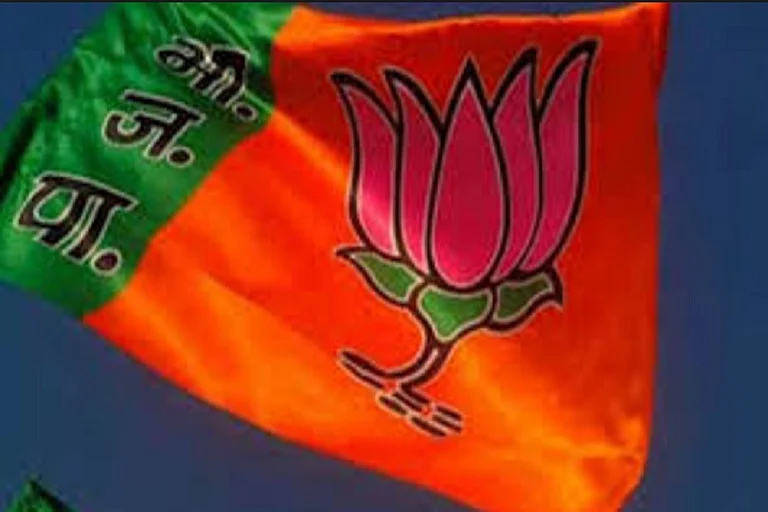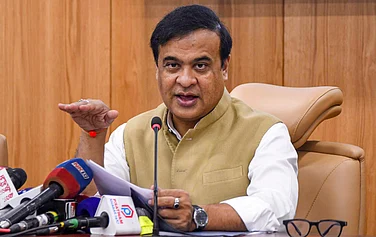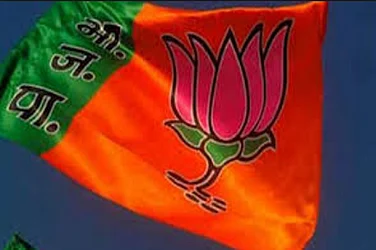In a scathing indictment of Bihar governor Buta Singh, the Supreme Court today found him guilty of "subversion" of the Constitution for recommending dissolution of the state Assembly and rapped theunion council of ministers for not verifying the facts in his two reports.
Holding that the governor "misled" the council of ministers, a five-judge Constitution Bench in a majority verdict said the "drastic and extreme action" under Article 356 of the Constitution could not be justified on "suspicion, whims and fancies" of thegovernor whose whole approach was to "stall" the Nitish Kumar-led JD(U) from forming a government.
"This court cannot remain a silent spectator watching the subversion of the Constitution," said the 198-page 3:2 verdict pronounced by Chief Justice Y K Sabharwal, Justice B N Agarwal and Justice Ashok Bhan.
"It is a clear case where attempt was made to somehow or the other prevent the formation of a government by a political party -- an area wholly prohibited in so far as the functions, duties and obligations of thegovernor are concerned. It was thus a wholly unconstitutional act," the Benchruled: "...The proclamation issued under Article 356, dissolving the Bihar assembly was illegal, unconstitutional and arbitrary."
Dissenting View
In the dissenting view, Justice K G Balakrishnan and Justice Arijit Passayat did not find anything wrong in Singh's report and said thegovernor's action was not malafide.
Justice Balakrishnan maintained that no material was placed before the governor by the JD(U)-BJP combine for staking claim to form government and the situation remained unchanged since March 7 when President's Rule was imposed and May 21 when he sent his report to the Centre which led to the dissolution of the House. Observing that thegovernor was not the decision-making authority, the judge said "His report would be scrutinised by the Council of the Ministers and a final decision is taken by the President under Article 174 of the Constitution. Therefore, it cannot be said that the decision to dissolve the Bihar State Legislative Assembly is malafide exercise of power based on totally irrelevant grounds."
In his dissenting note, Justice Pasayat said the governor's recommendation for dissolving the House did not suffer from any Constitutional invalidity. "It may in a given case be an erroneous approach, it may be a wrong perception, but it is certainly not irrational or irrelevant or extraneous."
Majority View
However, the majority view held that the governor acted in "undue haste" by coming to the conclusion that the political parties should go back to the electorate.
"Acceptance of such a proposition as a relevant consideration to invoke exceptional power under Article 356 may open a floodgate of dissolutions and has far reaching alarming and dangerous consequences.
""This will entail dangerous consequences, forcing the country to have another election whenever there was a fracturedverdict.. It may also be a handle to reject post-election alignments and re-alignments of same being unethical, plunging the country or the state to another elections," the Bench said.
However, the bench added, "Though the governor is the main player, the council of ministers should have verified the facts in the two reports sent by him on April 27 and May 21 2005."
Should Buta Singh Resign?
Ironically, the Congress party seems very relieved as it had feared that the judgement would be harsher on therole of the union cabinet. But the blame, instead, has largely fallen on the governor,or so the party would rather see it, pinning all blame on Buta Singh. Congress Spokesperson Abhishek Singhviseemed to indicate that by admitting that the "the political fallout of this is on the governor."
The Congress seems to have also decided to brazenly argue that the judgement is not a criticism of thecentre, admitting only to an "error of judgement". The President waswidely known to have been upset at how he had allowed the image of decency ofthe PM and the home minister to have taken them at their word, and there hadbeen speculation earlier that in case of severe strictures, he may haveconsidered resigning or forcing the PM to take moral responsibility. In October,when the SC had announced the verdict and held the dismissal to be"unconstitutional", the PM had taken responsibility for the decision.
Reacting to the development today, the PM came out with a rather strangestatement and said, "Whatever the Supreme Court says the country has to acceptit. The Supreme Court has got authority. We have to respect it." Asked whether Buta Singh will go,he said, "I do not want to comment."
The CPI (M) has asked for Buta Singh to step down while the CPI has asked forhis recall. Shri Lalu Yadav wants the decision to be left to Shri Buta Singh'sconscience. Predictably, the BJP wants not just the governor but also the PM toresign.
But the man at the centre of the controversy, governor Buta Singh, is playingit cool, saying he will study the judgment. In any case, he brazenly argued, theoperative part of the verdict, in October, about holding of free and fair pollshad already been implemented by his administration that conducted a "shaandaar"election. When asked about his plans, he said he plans to take salute as governor at the Republic Day parade inPatna. Ever helpful sources at Congress point out that the government would prefer him to resign on his own, but if he doesn't, itmay have to step in.
Appointment of Governors
In its judgement, the Supreme Court bench also invoked the Sarkaria Commission report,and called for a national policy with common norms for appointment of governors, which would be acceptable to all politicalparties. Sarkaria Commission had suggested that only an eminent person free from political affiliation should be appointed to the constitutional post.
(with inputs from agencies)


























